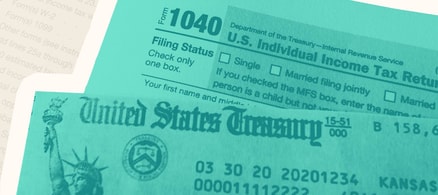Pre-tax investments are a way the government incentivizes people to save money for their future. Humans are notoriously bad at thinking long-term. We're biologically wired to focus on our needs in the present. Unfortunately, that can come to bite us in the butt when it comes to our retirement.
We have to think about ourselves at 65 when we're still 25. We must make sure that we have enough money to live on. Don't forget: 65-year-old you is still you!
What are pre-tax investments?
Enter pre-tax investments. (Sometimes pre-tax investment accounts are called tax-deferred accounts. Both terms simply mean that you can invest the money tax-free today and pay taxes later.)
Pre-tax investment accounts are accounts like a 401(k), 403(b), traditional IRA, Thrift Savings Plan, or Health Savings Account. All of these offer the option of funding the account with pre-tax dollars during your working years. You'll then pay tax on that money when you withdraw it in retirement. This allows your contributions to grow over your career tax-free. And this can mean big earnings over the long term.
As I said, these accounts are the government incentivizing us. They give us a tax break for investing in our pre-tax accounts. The hope is that when we're older and leaving the workforce, we won't have to rely on government assistance to pay our bills. It's the government's way of trying to get you to take care of your own future as much as possible, so it has less work to do.
So let's talk about what these investments are and how you can get started with them so that 65-year-old you is all taken care of.
What are the benefits of pre-tax investment accounts?
I'm glad you asked because the benefits are many.
The biggest financial benefit to funding your pre-tax accounts is the savings you reap. By funding pre-tax investment accounts first, you're tucking away money that you don't have to pay income tax on. This gives it a chance to grow unhindered for years.
If you're a high earner, this is a particularly appealing aspect of these accounts, since you'll likely be in a lower tax bracket when you retire. With pre-tax accounts, when you withdraw the money in retirement you will pay tax on it. But if you're in a lower tax bracket in retirement than you are during your working years, you'll have saved money, since the tax rate you'll be paying then will likely be lower.
So by funding those pre-tax investment accounts, you lower your tax obligation upfront and have the chance to lower it on the back end as well.
You also don't have to pay tax on the interest, capital gains, or dividends earned over the lifetime of your investments. That's even more money that you can reinvest, giving you a double boost on your overall investments.
Best pre-tax investments
It shouldn't come as a surprise that the best pre-tax investment account is your employer-sponsored 401(k). Especially if that plan comes with a match! Opening a 401(k) plan with your work usually involves some paperwork, but it's an account that will serve you well in retirement.
The maximum you can contribute to your 401(k) in 2023 is $22,500. If you can't put that much in, you should aim to contribute the amount that scores you a match from your company. But if your company doesn't offer a match, tuck away 9% of your income into your 401(k).
You might have the option of a 403(b), which functions similarly to a 401(k). 403(b)s are pre-tax retirement accounts for public school employees and tax-exempt organizations. They function much the same as a 401(k) in that your contributions and returns are tax-deferred, and those who are 50 and older can contribute at higher levels.
A traditional IRA is also one of the best pre-tax accounts around. IRAs can be opened by anyone over 18. Your contributions to a traditional IRA are not counted toward your overall annual income, making them pre-tax.
This is the opposite of the Roth IRA. With a Roth IRA, you pay your tax upfront and aren't taxed when you withdraw your money later. We recommend Wealthfront IRA to handle your retirement savings.
The downsides
There's always something of a downside, right? With pre-tax investment plans like a 401(k) or 403(b), your employer might have limitations on the types of investments you can buy through their plan. This might mean you don't get the exact type of investments you want, or there might be higher fees than if you invested outside of your employer-sponsored plan. (However, a company called Blooom was created to help maximize your 401(k) plan's potential. Read our full Blooom review here.)
Pre-tax accounts are also legally required to have a custodian linked to the account. In the financial world, “custodian” refers to a person or agency who reports your total contributions and withdrawals from the account.
If you do take a withdrawal (take any money out of the account), the custodian sends both you and the IRS a 1099 form, as that money counts as income for the year. You'll have to pay income tax on the amount withdrawn. And if you withdraw any money before you are 59½, you'll pay a fee on top of those income taxes. Think carefully before you withdraw money from your pre-tax investments before age 59½, as those taxes and fees can take a large chunk out of the total amount you end up with.
Summary
When it comes to saving for retirement, it takes a strategic plan to make sure you're saving the right amount of money in the right accounts. You want to make sure future you is comfortable. Pre-tax investments are a great way to defer paying taxes. And this in turn gives your money a chance to grow to its fullest over the years.
Pre-tax investments are a crucial part of anyone's retirement plan. They're a way to save money for the future, reap tax benefits in the present, and potentially lower your tax burden in the future. Pre-tax accounts sometimes come with a company match, which is another reason to take advantage of them.
We recommend the following software to handle your taxes:
| Recommended Service | Feature |
|---|---|
| Turbo Tax Premier | Full range of tax-filing products |
| TaxAct Premier+ | Easiest for investors |
| H&R Block Premium | Unlimited real-time tax advice |
| TaxSlayer Premium | All needed tax breaks for investments |
| Liberty Tax | Fast, easy and secure online tax filing |








